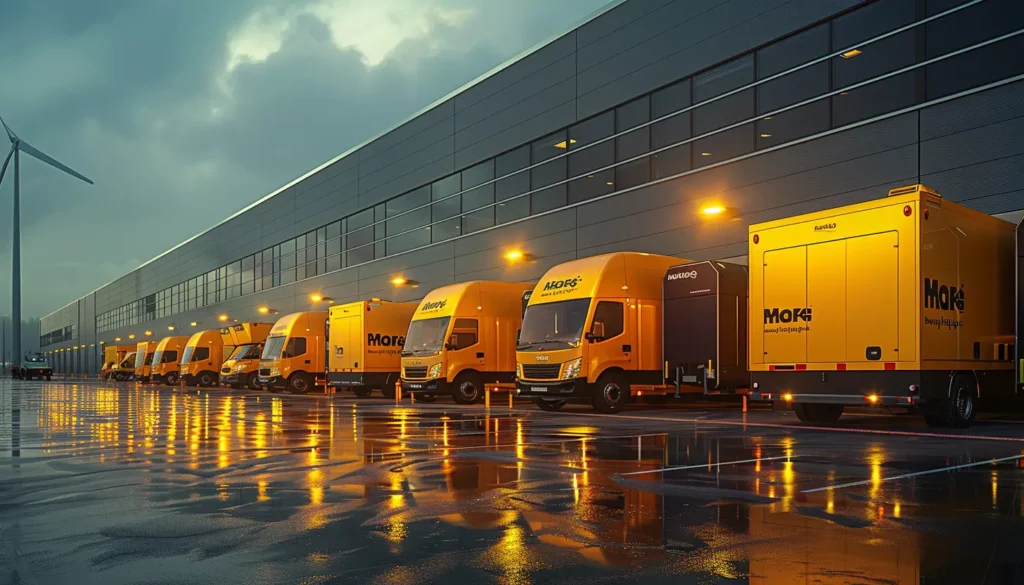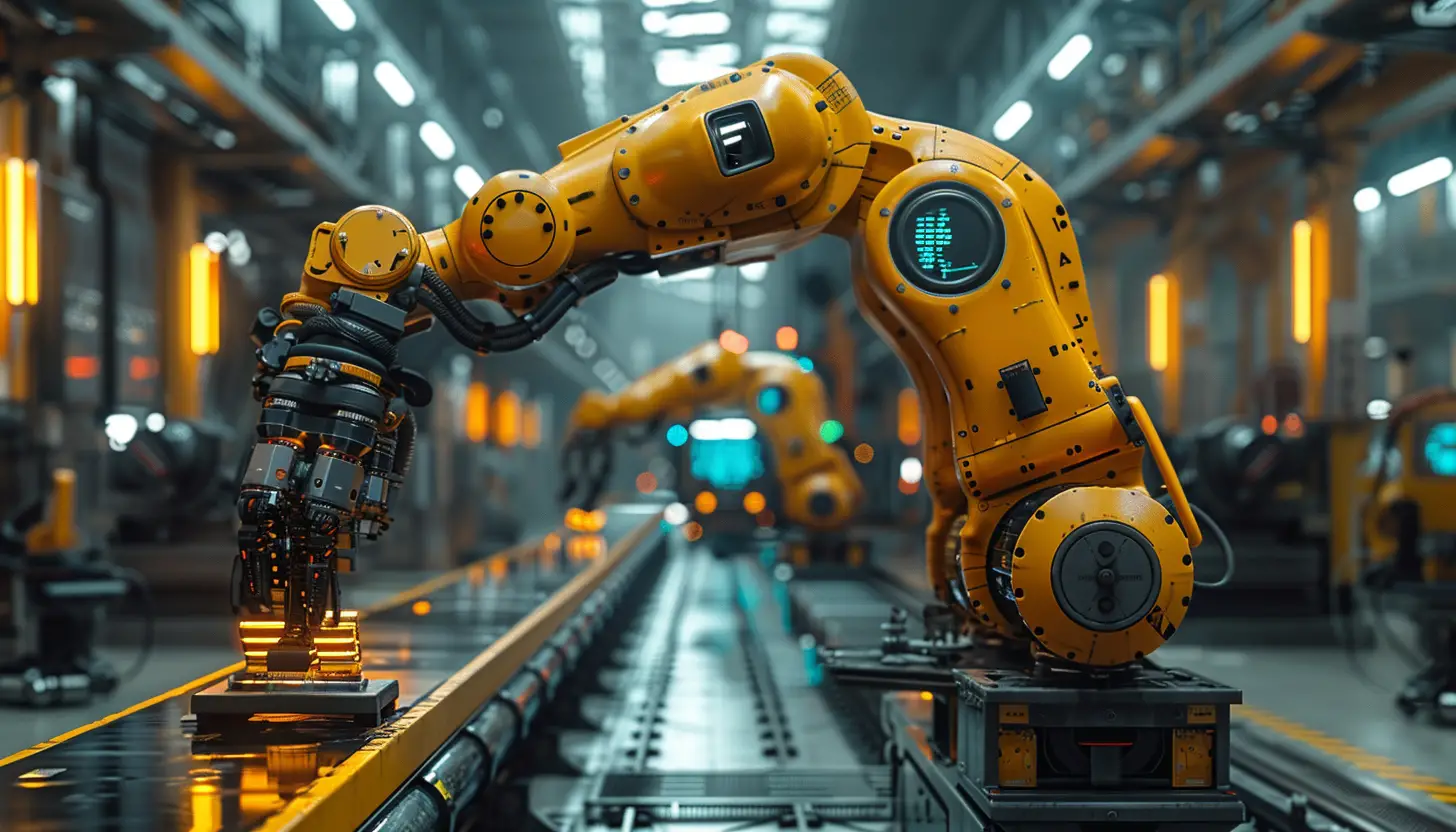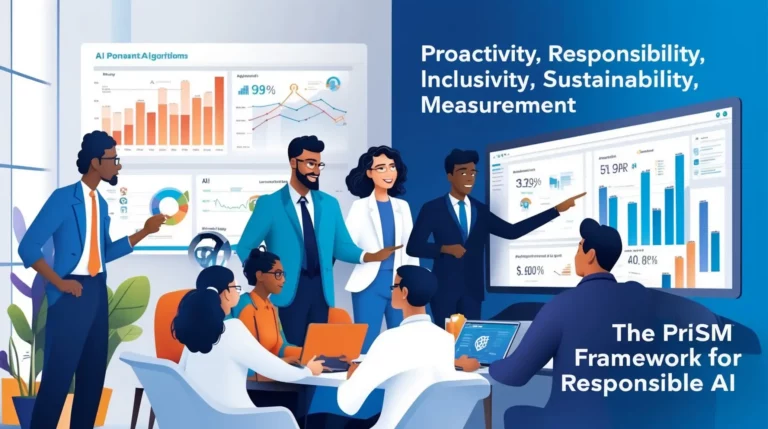AI in Logistics: Top Use Cases and Industry Role
Incorporating artificial intelligence (AI) in logistics has become increasingly crucial in today’s rapidly evolving business landscape. AI technology has reshaped how supply chain AI and machine learning in logistics operations are managed, offering innovative solutions to enhance efficiency and productivity. By harnessing AI’s power, logistics companies can streamline their AI and machine learning in supply chain management processes, improve inventory management, and optimize overall operational performance.
Our audience supports Ahcrypto. When you click on the links on our site, we may earn an affiliate commission at no extra cost to you. Learn More.
Key Takeaways
Integrating AI in Logistics
Integrating AI in logistics involves leveraging advanced AI solutions to revolutionize supply chain and logistics operations. The role of AI in logistics transcends conventional methodologies, introducing predictive analytics and generative AI to drive proactive decision-making within the logistics sector. Organizations can adopt AI to optimize supply chain operations and enhance efficiency by implementing AI algorithms and machine learning technologies.
Stay Updated with the Latest Digital Marketing Tips!
Subscribe to our newsletter and receive our exclusive guide, “Top 10 Digital Marketing Strategies for Success,” straight to your inbox
Applications of AI in Supply Chain
The applications of AI in the supply chain are vast and varied, encompassing a wide array of functionalities designed to enhance operational processes. From predictive analytics to AI tools for inventory management, AI plays a pivotal role in transforming how organizations manage their supply chain and logistics activities. By integrating AI models within the supply chain, companies can optimize supply chain performance and drive sustainable business growth.
Use Cases and Applications in The llogistics Industry.
Within the logistics industry, the use of AI presents numerous benefits and opportunities for enhancing operational efficiency. AI can be used to help with logistics. Implementing AI helps companies streamline their processes, improve decision-making, and enhance customer satisfaction in logistics. By leveraging AI-powered supply chain and logistics solutions, organizations can unlock new capabilities and drive innovation within the industry, positioning themselves as market leaders in the digital era.
Role of AI in Logistics Operations
The role of AI in logistics operations extends beyond automation, encompassing strategic planning, real-time decision-making, and data-driven insights. AI enables organizations to implement intelligent strategies for supply chain management and enhance operational agility. By leveraging AI technology within logistics, companies can enhance visibility, reduce costs, and improve overall efficiency, paving the way for sustainable growth and competitive advantage in the dynamic marketplace.
Leveraging AI for Supply Chain Management
 Pin
PinAI technology is crucial in improving inventory management within supply chain operations. Companies can use AI in Logistics, specifically AI algorithms and predictive analytics, to enhance their inventory control mechanisms. AI systems can analyze data to predict demand trends, optimize stock levels, and prevent stockouts. Incorporating AI in Logistics for inventory management leads to better decision-making processes and streamlined operations, ultimately improving efficiency and reducing costs in warehouse management.
Using AI to Improve Logistics Operations
AI in Logistics is utilized to enhance operational processes and efficiency. AI applications like route optimization algorithms and real-time tracking systems help logistics companies optimize their operations. Organizations can automate tasks, improve delivery times, and reduce transportation costs by leveraging AI in Logistics tools. Implementing AI enables logistics companies to address challenges promptly and adapt to dynamic market conditions effectively.
Predictive Analytics in Logistics with AI
Predictive analytics powered by AI in Logistics is revolutionizing the industry by enabling proactive decision-making. By analyzing historical data and real-time information, AI systems can forecast demand, identify potential disruptions, and optimize logistics operations. By integrating predictive analytics, companies can anticipate customer needs, prevent bottlenecks, and enhance overall service quality with the help of AI in Logistics.
Uses for generative AI in supply chain management and logistics
Generative AI offers unique capabilities in supply chain management and logistics. This technology can create simulations, optimize routing, and enhance demand forecasting. By harnessing generative AI, organizations can explore innovative solutions, improve decision-making processes, and optimize supply chain performance.
How technology can be leveraged to improve the logistics industry
Technology plays a vital role in enhancing the efficiency and effectiveness of the logistics industry. By utilizing advanced technologies such as artificial intelligence (AI), companies can streamline their supply chain operations, optimize inventory management, and improve overall operational performance. Integrating technology allows for real-time tracking of shipments, route optimization, and predictive analytics in logistics and supply chain management to anticipate and address potential disruptions proactively. These technological advancements drive cost savings and improve customer satisfaction through timely and accurate deliveries, ultimately positioning companies as industry leaders in the competitive logistics landscape.
The Impact of Artificial Intelligence on Logistics
 Pin
PinGenerative AI for Supply Chain Optimization
Generative AI presents a valuable opportunity for supply chain optimization within the logistics industry. This technology enables companies to create simulations, optimize routing processes, and enhance demand forecasting accuracy. By leveraging generative AI algorithms, businesses can explore innovative solutions to improve decision-making and optimize supply chain performance. Using generative AI, organizations can adapt quickly to market dynamics, reduce operational costs, and enhance overall supply chain efficiency.
The Role of Artificial Intelligence in Enhancing Logistics Industry
Artificial Intelligence is pivotal in transforming the logistics industry by enabling advanced capabilities such as predictive analytics, real-time decision-making, and data-driven insights. AI empowers companies to implement intelligent strategies for supply chain management, enhance operational agility, and drive sustainable growth. By leveraging AI technologies, logistics companies can enhance visibility, reduce costs, and improve overall efficiency, positioning themselves for long-term success and a competitive edge in today’s dynamic marketplace.
Utilizing AI to Enhance Supply Chain and Logistics Efficiency
Integrating AI within supply chain and logistics operations offers significant opportunities to enhance efficiency and streamline processes. AI applications such as route optimization algorithms and real-time tracking systems enable companies to automate tasks, improve delivery times, and reduce transportation costs. By harnessing AI tools, organizations can address operational challenges effectively and promptly adapt to changing market conditions. Predictive analytics fueled by AI enables proactive decision-making, forecasting demand, preventing bottlenecks, and delivering enhanced service quality within the logistics industry.
Enhance Logistics Efficiency Through Predictive Analytics
Predictive analytics powered by AI is revolutionizing logistics by enabling proactive decision-making. By analyzing historical data and real-time information, AI systems can forecast demand, identify potential disruptions, and optimize logistics operations. By integrating predictive analytics, companies can anticipate customer needs, prevent bottlenecks, and enhance overall service quality.
23 Use Cases and Application of AI in Logistics Operations
Generative AI offers unique capabilities in supply chain management and logistics. This technology can create simulations, optimize routing, and enhance demand forecasting. By harnessing generative AI, organizations can explore innovative solutions, improve decision-making processes, and optimize supply chain performance.
Technology plays a vital role in enhancing the efficiency and effectiveness of the logistics industry. By utilizing advanced technologies such as artificial intelligence (AI), companies can streamline their supply chain operations, optimize inventory management, and improve overall operational performance. Integrating technology allows for real-time tracking of shipments, route optimization, and predictive analytics to proactively anticipate and address potential disruptions. These technological advancements drive cost savings and improve customer satisfaction through timely and accurate deliveries, ultimately positioning companies as industry leaders in the competitive logistics landscape.
Conclusion
In conclusion, integrating AI in logistics is not just a trend but a transformative force reshaping the industry. By harnessing the power of artificial intelligence, logistics companies are unlocking unprecedented levels of efficiency, accuracy, and innovation. From predictive analytics to intelligent automation, AI’s applications streamline supply chain operations, enhance decision-making, and provide a competitive edge in today’s fast-paced market. As we look ahead, the role of AI in logistics will only grow, further revolutionizing how goods are moved and managed around the globe. Embracing these technological advancements is critical for any logistics entity aiming to stay relevant and excel in the digital age.
Keep updated on all of our latest tips here.
FAQ

Scott Evans
Hey there, I’m Scott Evans, your friendly guide at AhCrypto! I’m all about breaking down complex SaaS, AI, and tech topics into digestible insights. With me, you’re not just keeping up with the tech world; you’re staying ahead of the curve. Ready to dive into this exciting journey? Let’s get started!







